Kazimierz Deyna
Kazimierz Deyna is undoubtedly the best player in the history of the Polish national team, which he leads to many great surprise performances.
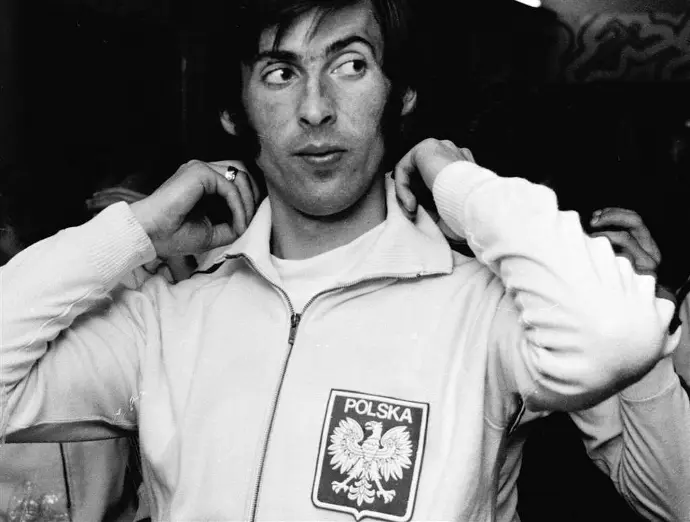
Trophies
Goals
Games
1966 LKS Lodz (POL) 1 match
1966/78 Legia Warsaw (POL) 389 matches, 141 goals
(Polish Championship: 304 matches, 94 goals)
(Polish Cup: 45 matches, 30 goals)
(European Champion Clubs' Cup: 14 matches, 4 goals)
(UEFA Cup Winners' Cup: 8 matches, 5 goals)
(UEFA Cup: 12 matches, 2 goals)
(Intertoto Cup: 6 matches, 6 goals)
1978/81 Manchester City (ENG) 43 matches, 13 goals
(English Premier League: 38 matches, 12 goals)
(English Cup: 2 matches)
(English League Cup: 2 matches)
(UEFA Cup UEFA: 1 match, 1 goal)
1981/84 San Diego Sockers (USA) 90 matches, 44 goals
1981/87 San Diego Sockers (USA) (indoor) 169 matches, 118 goals
With the National Team :
97 caps, 41 goals
(Friendly matches: 46 caps, 19 goals)
(World Cup qualifiers: 16 caps, 10 goals)
(World Cup: 13 caps, 4 goals)
(Euro qualifiers: 10 caps)
(Olympic Games qualifiers: 2 caps)
(Olympic Games: 10 caps, 8 goals)
1st cap: April 24, 1968 against Turkey (8-0)
Last cap: June 21, 1978 against Brazil (1-3)
Olympic: 6 caps, 4 goals
U23: 2 caps, 2 goals
U19: 5 caps

Kazimierz Deyna
Born October 23, 1947 in Starogard Gdanski (POL)
Died September 1, 1989 in San Diego (USA)
Poland.png Polish, Attacking Midfielder, 1m80
Nicknames: The General, "rogal", Kaz, Kaka
Early career and military service
Born in the Gdansk region in 1947, the young Kazimierz joined the colours of the local club at the age of 11. Very quickly, his reputation extended beyond the limits of his city. Selected in the national youth teams, he attracted the covetousness of the big clubs in Poland. In 1966, LKS Lodz thought they had made a good deal by signing the young prodigy.
But bad news was to be sent by the all-powerful club of the Ministry of the Army, Legia Warsaw. After only one match played for the Lodz club, Kazimierz received a very clever summons to do his military service in Warsaw. At the age of 19, Deyna then arrived at Legia. He did not yet know that he would spend thirteen seasons in the colours of the capital club and become one of its driving forces and at the same time the darling of the public.
The coach quickly entrusted the young Kazimierz with the animation of the team's play. His arrival should allow the Warsaw club to stop the hegemony of Ruch Chorzow, which monopolizes the victories in the championship and the cup. From the 1967-68 season, he becomes the undisputed holder in the position of leader of the Légia and rubs shoulders with very talented players like Brychszy, Gadocha, Gmoch and Kasperczak. With such a player in its ranks, the Warsaw club wins the title of champion twice consecutively (1969 and 1970) before being vice-champion in 1971.
The greatest legend of the Polish national team
Kazimierz Deyna plays his first match with the national team in 1968. When he is only 20 years old, he plays this first match against the Turkish team. Easy victory 8-0 of Poland. Very quickly, he becomes a legend of Polish football and the technical leader of his team. In total, he played 97 matches for Poland and scored 41 goals.
In 1972, he won the Olympic Games with Poland and truly established himself as one of the best players of his generation. In 1973, following Lubanski's serious injury, he became captain of the national team. It was with an armband on his arm that "the General" led his troops to qualify at Wembley for the 1974 World Cup. During this 1974 World Cup, Deyna had a superb competition, contributing to Poland's surprise third place. Named best playmaker of the tournament, he was in the tournament's team of the year. That year, he finished in 3rd place in the Ballon d'Or behind Franz Beckenbauer and Johan Cruyff.
In 1976, he achieved a new feat with Poland and finished with the silver medal at the Montreal Olympic Games. In 1978 he took part in the World Cup in Argentina and achieved a fifth place, another surprise with Poland, which he always leads to the top of world football. His last match with Poland was the 3-1 defeat against Brazil in the tournament.
The year 1978 was synonymous with change for Deyna, a change that would be at his initiative but for which he would not have the choice of the next club. At the time, only Polish players over 30 years old could join foreign clubs.
A disappointing end to his career due to Polish authorities
While the biggest clubs were interested in the player, it was Manchester City that recovered the player. Why Manchester City? Because the Polish military authorities had chosen the arrival club. The transfer fee was paltry, 110,000 pounds sterling and office equipment.
At that time, English football was known for its aggressive, rough and violent game. Deyna, the lover of technique and beautiful football, did not get used to the physical and aggressive English game. He played 43 matches for 13 goals for the English club before leaving for the United States.
At 34, he left for the other side of the Atlantic to play four seasons with the San Diego Sockers. The opportunity for the prodigy to appear in John Huston's historical-football film "To Us Victory". Deyna plays the fleeting role of a Polish soldier imprisoned in a German camp during the Second World War. The Polish international will spend several magnificent years in the Californian club with three US championship titles to his name. In 1987, he hangs up his boots and wants to open a football school for young people.
The tragedy of the Polish genius
Ruined by his American manager, he cannot carry out his project. At the same time, he encounters difficulties in his family life. All these elements make Deyna, who has never touched a drop of alcohol, start drinking. Tired, he plans to return to his native Poland. Fate will not give him the time. He is killed in a car accident in San Diego, California at the age of 42. The tests carried out will reveal a high level of alcohol in his blood. Voted in 2000, the best Polish player in history, the player brought light to his country before meeting a tragic fate.
A sad end for the player with an extraordinary intelligence of the game. He will forever remain this player who always played with his head up, focused on the game. With his exceptional vision of the game, he had no difficulty in organizing the game, whether on short or long play. He also had the ability to play in one touch, to dribble or to keep the ball while waiting for the right thing to do. His quality of shooting and taking free kicks or even corners, which he sometimes took directly, earned him the nickname "rogal" (croissant in Polish).
Trophies :
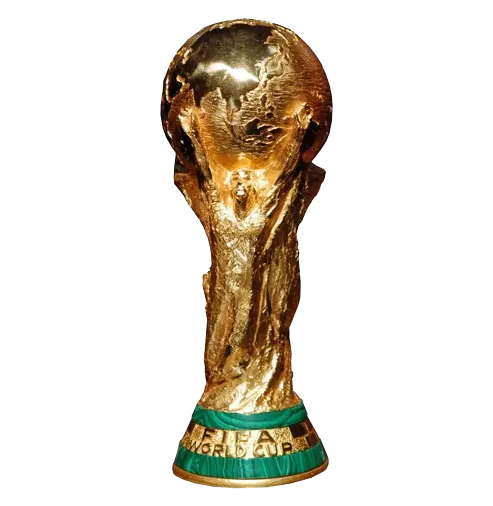
3rd at World Cup x1
- 1974 (Poland)
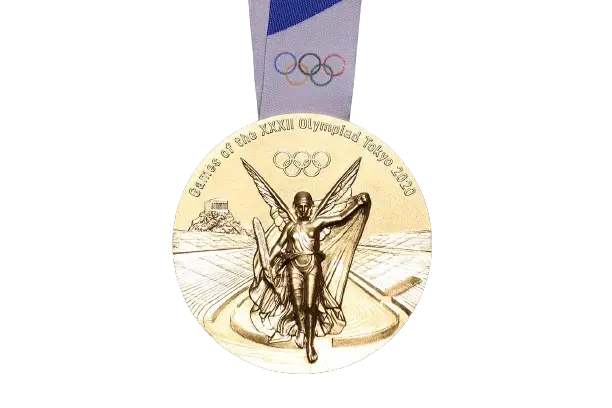
Olympic gold medal x1
- 1972 (Poland)
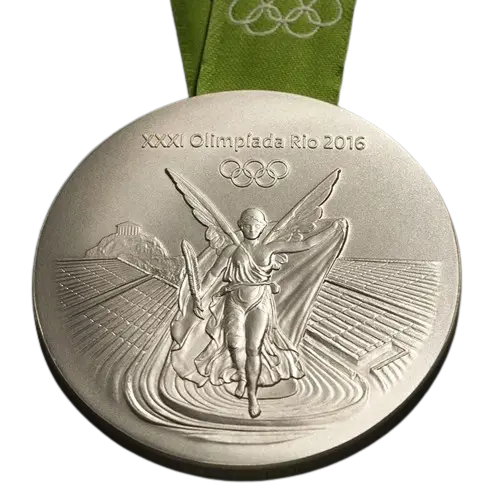
Olympic silver medal x1
- 1976 (Poland)
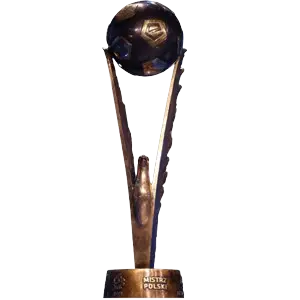
Polish League x2
- 1969 (Legia Warsaw)
- 1970 (Legia Warsaw)

Vice-Champion Polish League x1
- 1971 (Legia Warsaw)
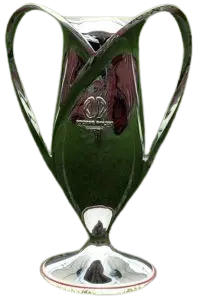
Polish Cup x1
- 1973 (Legia Warsaw)
MISL Championship (Indoor) x3
- 1983 (San Diego Sockers)
- 1985 (San Diego Sockers)
- 1986 (San Diego Sockers)

Finalist Polish Cup x1
- 1969 (Legia Warsaw)
Individual Trophies :
- Bronze Ball in 1974
- Top scorer at the 1972 Munich Olympics (9 goals)
- Elected Polish Footballer of the Year in 1973 and 1974
- Elected Polish Footballer of the Year by the Polish newspaper "Sport" in 1969, 1972 and 1973
- Polish Golden Boot in 1977
- Named to the team of the tournament of the 1974 World Cup
- Elected the best Polish player of the 20th century by the Polish magazine "Football" in 2000
- Honored Master of Sports of Poland in 1971
- Received the Polish Golden Cross of Merit in 1972
- Received the Knight's Cross of the Order of Polonia Restituta in 1974
- Received the Golden Badge PZPN in 1972
- Received the Gold Medal "For Outstanding Sporting Achievements" awarded by the Polish Culture Committee in 1972